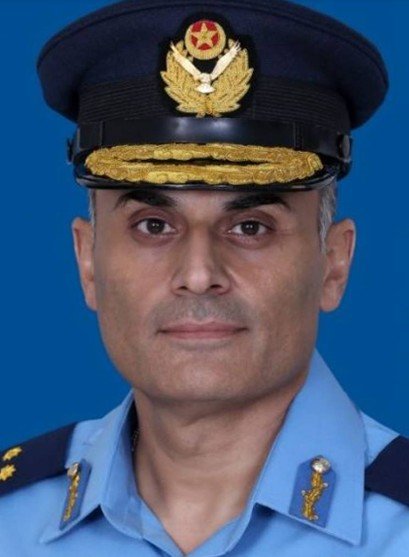In a development that has reignited diplomatic tension between India and Pakistan, Pakistan Air Vice Marshal Aurangzeb Ahmed, in his capacity as Director General Public Relations of the Pakistan Air Force, made a controversial statement referring to the 2019 Pulwama terror attack as an example of “tactical brilliance.” The statement, made during a press briefing attended by international reporters, has triggered strong reactions across Indian strategic and political circles, especially as it comes in the wake of the recent Pahalgam terror attack.
Aurangzeb Ahmed’s remarks, captured on video and widely circulated on social media platforms, have not only raised serious questions about Pakistan’s long-standing denials of involvement in the Pulwama attack but have also cast fresh light on Islamabad’s consistent pattern of doublespeak on cross-border terrorism. In a firm tone, Ahmed said that if Pakistan’s territorial integrity—whether land, skies or waters—is threatened, it would not compromise under any circumstance. Citing Pulwama as an instance, he claimed, “We tried to convey this with our tactical brilliance in Pulwama, and now we’ve shown our strategic skills too.”
This unexpected and provocative admission appears to contradict Pakistan’s official stance maintained in international forums, where it has persistently distanced itself from the Pulwama attack and denied any links to terror outfits like Jaish-e-Mohammed (JeM), which had claimed responsibility for the suicide bombing that killed 40 Indian Central Reserve Police Force (CRPF) personnel.
The Pulwama attack on February 14, 2019, remains one of the deadliest terrorist incidents on Indian soil in recent history. It was followed by India’s decisive response through the Balakot airstrikes, which targeted a JeM training camp deep inside Pakistan’s Khyber Pakhtunkhwa province. The air raid marked a strategic shift in India’s counter-terrorism doctrine, demonstrating a willingness to breach the Line of Control in response to cross-border terror acts.
What followed was a high-stakes aerial dogfight between the Indian Air Force and Pakistani jets, during which Indian pilot Wing Commander Abhinandan Varthaman was captured by Pakistan after his MiG-21 Bison was shot down. His release, just days later, was portrayed by Pakistan as a peace gesture, though many international observers noted it came under immense diplomatic pressure.
The resurfacing of Pulwama in Pakistani military rhetoric, especially in such glowing terms, has now revived painful memories for the families of the victims and rekindled the debate over Pakistan’s accountability in cross-border terrorism. Indian analysts have termed Ahmed’s words as a chilling and irresponsible glorification of a terror strike that cost innocent lives.
Security experts and strategic affairs commentators are also noting the timing of the statement. It comes in the backdrop of the Pahalgam terror incident, which has already strained relations further. The fresh rhetoric is being viewed not merely as provocation but as part of a larger narrative-building effort in Pakistan’s defence circles aimed at asserting military prestige amid growing internal political and economic pressure.
The Indian government is expected to raise this matter through diplomatic channels, and voices across the political spectrum are calling for an official response. The statement has the potential to further sour already fraught ties between the two nuclear-armed neighbours, which have seen limited engagement since the abrogation of Article 370 in Jammu & Kashmir in 2019.
With tensions escalating and rhetoric intensifying, the fragility of peace in South Asia is once again under global scrutiny. As the world watches closely, India is likely to recalibrate its diplomatic and security strategy to ensure that terrorism is neither normalized nor mischaracterized as military strategy by any state actor in the region.
#PulwamaAttack #IndiaPakistanTensions #BalakotStrike #NationalSecurity #TerrorismNotTactics
This is an auto web generated news web story.





